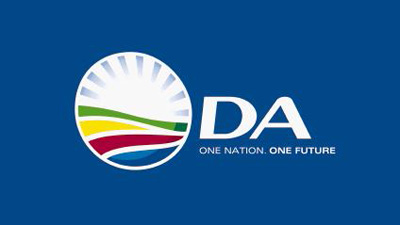The Democratic Alliance (DA) will hold its 6th Federal Congress on 9 and 10 May 2015 at the Boardwalk Convention Centre in Nelson Mandela Bay, Eastern Cape. The Federal Congress is the party’s highest decision-making body and comprises delegates who are ordinary members and public representatives from DA branches across the country. The Federal Congress is the only party structure that can elect party leadership and make amendments to the party’s Federal Constitution. At its last Federal Congress held on 24/ 25 November 2012, Helen Zille was re-elected party leader unopposed. Zille took over as party leader after Tony Leon stepped down in May 2007. At that congress, Zille secured 72% of the vote, compared to her opponents Atholl Trollip (22%) and Joe Seremane (6%). The 2015 congress will be the first time since 2007 that the leader’s position will be contested as Zille stood unopposed in July 2010 and November 2012.
This weekend will see either Mmusi Maimane or party veteran Dr Wilmot James ascending the main opposition’s highest office, that of party leader. Maimane’s confirmation by the party’s rank-and-file members as DA leader is almost a given. To ensure a smooth victory, a candidate need only secure two powerful blocs in combination or one of them coupled with other key regions present at the Federal Congress. Gauteng and the Western Cape are sending the most number of voting delegates, 382 (26%) and 431 (29.3%) respectively. If Maimane is to nail his name to the DA leader’s mast, he needs to win one of these blocs comfortably.
If indeed he does manage to convince this combined group of 813 delegates, more than half (55%) of his battle to succeed Zille will have been won. I am still not convinced however that Maimane is the best person to take the DA forward, not at this crucial juncture when we have local elections around the corner. Yes, he is young; he is the right colour; he speaks beautifully; he has an Obama-esque quality about him; and he is that elusive Black leader the DA so desperately needs to shake off that ‘still White’ image the party is saddled with. But leadership is more than these factors. A leader needs to be confident when he or she articulates the party’s ideological stance on issues on all platforms. Just this week, Maimane demonstrated in multiple interviews why he is not ready for such a cumbersome job – not just yet. I think Maimane is exactly what the DA needs but the timing is not ripe for that seminal moment. I would have preferred if he stood for the DA leader’s job in 2017, just before the 2019 general elections. These two extra years would have afforded Maimane to build his profile more, especially in a parliament that has altered significantly since the 2014 elections. And I still have my suspicions on exactly why Wilmot James is contesting the leader’s job. If my memory serves me correct, I understood that James was to retire soon. So when he announced that he would challenge Maimane, I was not taken aback one bit. I think it is a veiled attempt at silencing the African National Congress (ANC); and to illustrate to them that positions are contested within the DA as compared to people merely thrust into high office. The television debate on KykNet between Maimane and James too was testament to the DA doing things differently to the ANC. We all know that such robust discussions – especially through a mass medium like television – are not commonplace in South African politics.
Whatever the outcome of this weekend’s elections within the DA, the party will never be the same. A seed of historical change has been planted. It should germinate by the time we go into the 2016 local government elections; it will however be in full bloom when South Africans head off to the 2019 general elections. By that time, the DA will have shaken the race label off its back permanently led valiantly by its very first Black leader. The party will also be pinning its hopes on permeating national government and possibly winning more provincial administrations, especially the prized Gauteng. Also, if the party’s wins in the SRC elections at both the historic Fort Hare University and the Nelson Mandela Bay Metropolitan University are anything to go by, the party is beginning to capture the imagination of South Africa’s rising young.
I reckon this electoral assault is just the beginning; watch the eight metropolitan cities in the 2016 polls and the onset of a new type of coalition politics. The evidence is there: South Africa may just be heading for a two-party state with the main opposition increasing its electoral fortunes from 1.73% in 1994, 22.23% in 2014; and possibly beyond the 30% mark after 2019.
RONESH DHAWRAJ is a Specialist Researcher: Politics, Elections and Service Delivery with the SABC News Research and Policy Analysis Unit. He is presently engaged in his Ph D studies focussing on the ANC, DA and EFF’s 2014 election campaign; and how social media was leveraged to increase vote-share.
– By Opinion by Ronesh Dhawraj


